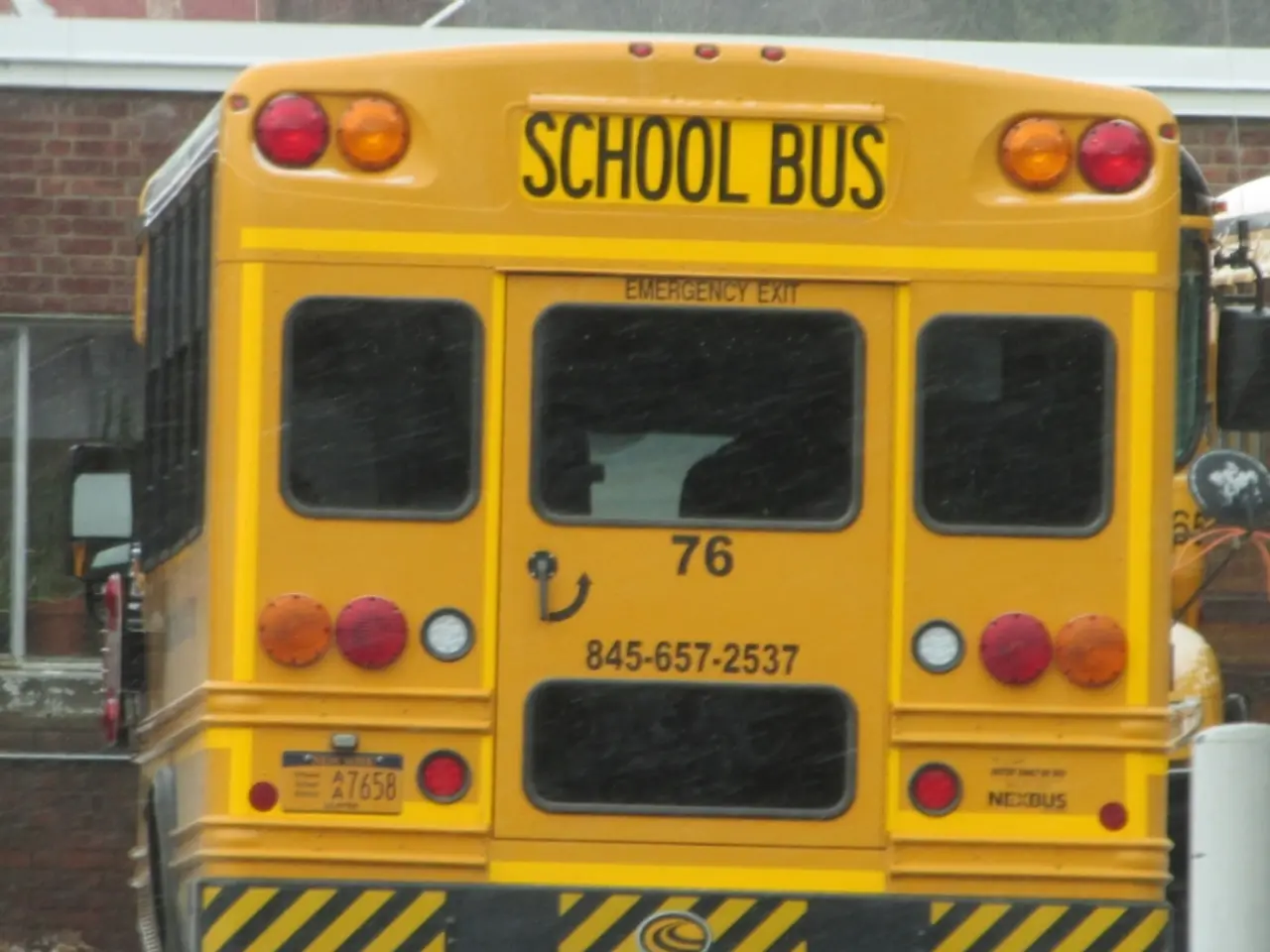Criticism of SPD: "Improvements are unlikely in the upcoming Kindergarten year"
In the heart of North Rhine-Westphalia (NRW), a heated debate between the state's Family Ministry and the Social Democratic Party (SPD) has arisen over the availability of kindergarten places and rising fees.
The NRW Family Ministry asserts that there is no shortage of kindergarten spots, with approximately 760,000 places available for the upcoming kindergarten year, which begins on August 1, 2025. However, the SPD questions this position, pointing out that fees for childcare services have significantly increased, putting a strain on families and suggesting a lack of adequate provision or affordability.
The disagreement stems from contrasting perspectives on the childcare situation. The Ministry emphasizes the quantitative availability of places, while the SPD focuses on qualitative issues such as rising costs, which effectively restrict access. The SPD argues that despite the Ministry's claim of ample availability, the increasing fees are limiting access for many families, implying that the ministry's statistics on places do not reflect the practical affordability and accessibility challenges faced by parents.
One of the most pressing concerns is the rising kindergarten fees, which vary significantly from municipality to municipality. For instance, parents in Dortmund pay 377.62 euros per month, while in Erkelenz it's 568.78 euros, in Coesfeld 677.22 euros, and in Rheine only 493.08 euros for comparable income. These variations have led to a growing frustration among parents, particularly those from lower-income families who are often forced to forgo kindergarten and early childhood education due to high fees.
The issue of personnel shortages in kindergartens has also come to the forefront. Over the past twelve months, kindergartens in NRW reported around 34,000 cases of personnel shortages, and over 1,000 kindergartens had to temporarily close as a result. This has further exacerbated the situation, leading to uncertainty and instability in the childcare sector.
In an attempt to address these issues, Family Minister Josefine Paul has announced a reform of the Children's Education Act (Kibiz) to improve the situation of skilled workers, reduce bureaucracy, and increase funding. However, the ministry does not collect its own data on the height or increases of parental contributions in the respective youth welfare offices or municipalities, and Minister Paul does not provide a complete overview of kindergarten fees in NRW.
The state government is also unable to provide fee exemptions due to a lack of data. The SPD suspects that more and more parents are finding other solutions due to frustration with the unstable care in kindergartens. The closure of 102 kindergartens and a reduction in the offer of kindergarten places by 5,000 further fuels these concerns.
The aim of Family Minister Josefine Paul is to achieve more stability and reliability for children, parents, and employees in the coming year. Early childhood education has priority in NRW for the new kindergarten year. However, it remains to be seen whether these measures will address the concerns raised by the SPD and alleviate the financial burden on families.
- The SPD is advocating for a focus on the qualitative aspects of education and childcare, such as the rising fees, as they believe these factors are limiting access to online education and general news, especially for those from lower-income families.
- The debate between the NRW Family Ministry and the SPD extends beyond policy-and-legislation and education-and-self-development, touching upon politics and the political landscape of North Rhine-Westphalia, as the affordability of kindergarten fees considerably impacts families.
- In light of the ongoing discussion and proposed reforms, it is essential to monitor and analyze data on parental contributions in education, as this information could help evaluate the success of policy changes, support online learning, and ensure that resources are distributed effectively to address educational and financial challenges in the coming years.




